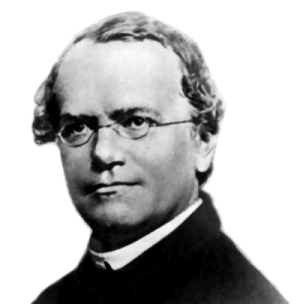I first crossed paths with Dr. Siddhartha Mukherjee as a PhD student at the Johns Hopkins University in 2012, where he had come to talk about his highly acclaimed, Pulitzer prize-winning book, The Emperor of all Maladies: A Biography of Cancer. It was a rather big auditorium, but proved to be to quite small for the sea of admiring students and faculty that had come to hear him speak. I, on the other hand, had actually not heard of Mukherjee till that day, and was simply tagging along with my friends. Nevertheless, I quickly realized that I was witnessing something extraordinary, as I glanced around the densely packed room and struggled to find a seat even on the steps. What ensued was a mesmerizing storytelling session on the history of cancer and the remarkable people behind it. Mukherjee’s beautiful and inviting presentation prompted me to buy his book the very next day.
The book was as engrossing and engaging as I had imagined after listening to his presentation. It was the kind of writing that holds your mind hostage even after you are done reading; that invigorates your sense of curiosity and stimulates your intellect; that simultaneously brings a smile on your face and tears to your eyes. It was a book that inspired me to write and made a fan out of me.
So, earlier this year, I quite naturally started reading The Best American Science and Nature Writing, 2013, with Mukherjee as its editor. Through the introduction to the book, Mukherjee takes the readers on yet another journey–only this time to the monastery of Gregor Mendel- the founder of modern biology, in Czech Republic. Through this journey, Mukherjee points to an uncommonly quoted quality of a scientist—“tenderness,” a term that should resonate with every craftsman and creative person and is a hundred percent worth sharing.
“Intelligent”, “meticulous”, “hardworking”, “stickler” are some words used commonly to describe a scientist. “Tenderness”, however is not one of one, admits Mukherjee. Regardless, the term gets quickly justified once Mukherjee starts narrating the painstaking efforts with which Mendel conducted his arduous eight-year long cross-fertilization experiments on plants, which eventually led to the discovery of genes—a breakthrough discovery that completely revolutionized Biology. “It requires indeed some courage to undertake a labor of such far-reaching extent,” Mukherjee quotes Mendel’s statement from his seminal 1865 paper. Mukherjee then contends that perhaps “courage” is not the most befitting word to describe Mendel’s work and proposes to replace it with “tenderness”. He says:
Mendel was, first and foremost, a gardener; his science began with tending. His genius was certainly not fueled by deep knowledge of the conventions of biology (thankfully, he failed that exam). Rather, it was his instinctual knowledge of the garden, coupled with an incisive power of observation that brought him to question the nature of inheritance and thereby discover genes. The act of tending—the laborious cross-pollination of seedling, then meticulous tabulation of the colors of cotyledons and the markings of wrinkles on seeds—soon led him to findings that could not be explained by the traditional understanding of inheritance. Heredity, Mendel realized, could be explained only by the passage of discrete pieces of information from parents to offspring. These had to be atoms of information—particles of inheritance—moving from one generation to the next. Tending generated tension—until the old fulcrum of biology was snapped in two.
Anyone who has ever worked in a laboratory would agree wholeheartedly with Mukherjee’s contention—the quality of nurturing, of caring, of kindness to the work you are doing–is indeed a pre-requisite to doing any kind of science.
I, myself, have experienced this quality when doing even the most mundane tasks in the lab. Tasks such as setting up a Western blot—ensuring soaking the filter paper thoroughly in the buffer; neatly stacking the sponges, the filter paper, the membrane; squeezing out all the bubbles; or growing a culture of bacteria—checking the temperature of the incubator; carefully measuring the amounts of growth media, ensuring sterility of the hood; or writing down my observations in a notebook–remembering not to forget the details, describing each and every event, even if it felt silly then to take note of such a seemingly insignificant detail.
I also realize that in the events when my experiments did not work, it was often due to a lack of tenderness–hastily setting up an apparatus; or not studying an unusual phenomenon because it was not priority.
Imagine if Mendel decided to not study that 10,000th plant; or if Edison did not test those thousands of “vegetable growth” in search of the perfect filament for his light bulb; or if Alexander Fleming had not stopped to notice the destroyed bacterial colonies on the petri dish contaminated with a fungus. Science would not be where it is now and our understanding of the world and its origins and its future would be completely dwarfed. Indeed, great science demands great tenderness.
